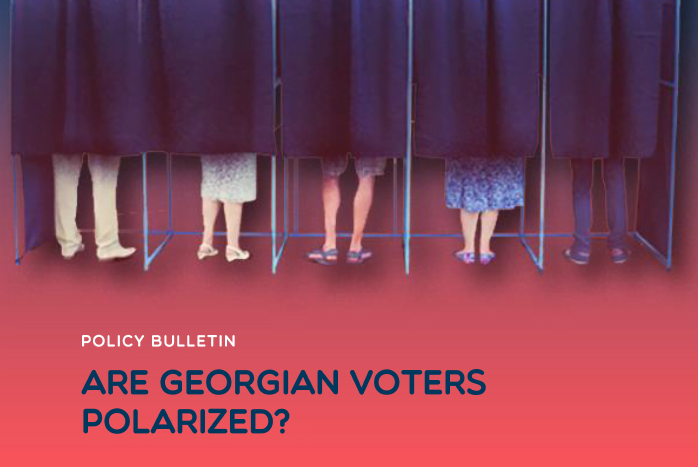Caucasus Research Resource Centers (CRRC) Georgia released a policy bulletin on October 6, asserting that although “there is a division in society, there is little political polarization.”
CRRC Georgia studied the division between political groups in Georgia, including key differences between Georgian Dream (GD) and United National Movement (UNM) supporters, finding that “the only thing that divides” these groups is “explicitly political, such as partisan victories and politicians themselves.”
According to the policy bulletin, despite the “divisive political discourse”, Georgians are “generally united on what matters to them in terms of issues”, such as the economy and foreign policy.
“People are divided over partisan political events, politicians and the institutions they run. Moreover, the public recognizes that this divides Georgians,” CRRC Georgia notes. The policy bulletin cites the GD and UNM supporters’ attitudes towards the Rose Revolution and the government change in 2012 as an example of such division.
The research organization asserts that “people clearly recognize that personalities divide them,” citing the April 2019 CRRC and NDI survey, where 81% of surveyees stated that politicians divide Georgia as a society, while 73% of them answered “Russia”.
CCRRC Georgia asserts that political partisanship, one of the key conditions for polarization, is absent in Georgia: “in the NDI survey… with 51% of the public with no party closest to them or not knowing which party they support.” Also, the policy bulletin states that although GD and UNM “are political opponents, Georgian society is not split between them.”
CRRC Georgia concludes that “rather than polarized, Georgians, on the whole, are united around the vast majority of issues, and even on what divides the country: personalities rather than policies.”
According to CRRC Georgia, their and NDI’s data show key issues over which the Georgian public is generally united, such as jobs, inflation, goals to join the EU and NATO. Regarding the recent large-scale economic reforms, GD and UNM supporters have different views on only one of them, namely on banking regulations adopted on January 19, 2019, while having no significant differences in support for the pension scheme, the other major reform.
CRRC Georgia asserts that most Georgians are socially conservative, with “few partisan differences”, highlighted by UNM and GD supporters reporting similarly on a variety of issues. 54% and 45% of UNM and GD supporters, respectively, believe it is acceptable for their child to marry a person of a different religion, while 85% and 78% believe it is acceptable for their child to divorce. 80% and 77% think that inheritance should go to the son in the family. Only 23% and 20% of UNM and GD supporters are in favor of marijuana legalization, while only 30% and 21% think that foreigners should be allowed to own land.
Differences between the supporters of both parties emerged only regarding LGBT issues and wearing earrings, with UNM supporters being “16 points more likely than GD supporters to report that LGBT rights are important”, as well as 12 points more likely to approve of their sons wearing earrings. Although support for these two issues is still considerably low.
Despite mostly highlighting the differences and similarities between UNM and GD supporters, the policy bulletin also cites data on voters who support “liberal parties like European Georgia and Republican Party”, as well as people with no party allegiances, or who refused to name the party they support, with all reporting similar attitudes as the supporters of UNM and GD.
This post is also available in: ქართული (Georgian) Русский (Russian)

